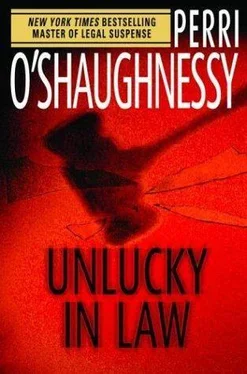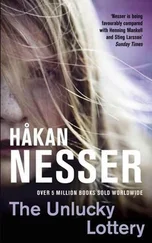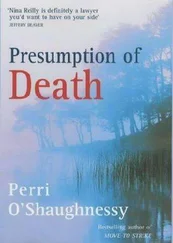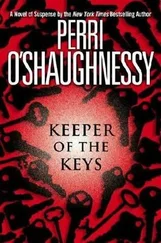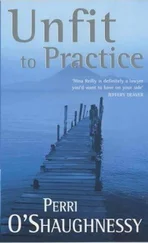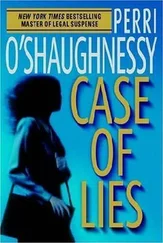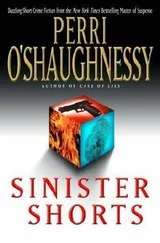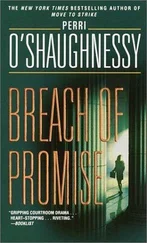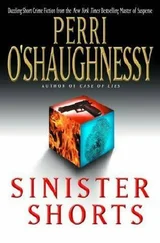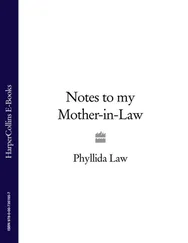“Yeah, well, he’s no pushover.”
Nina stood. Jaime Sandoval, the prosecutor, noticed, then turned his eyes toward the papers spread out on the table in front of him, mad. He had obviously hoped for Klaus.
“Good afternoon, Mr. Zhukovsky,” she said. “My name is Nina Reilly and I represent the defendant, Stefan Wyatt.”
“Good afternoon,” he replied coolly.
She asked him questions about the identification of his father’s bones and his sister’s body, fairly rapid-fire, but with a logical progression that she hoped made it easy to follow. She cleared up points about how he had offered a key to the police to let them into Christina’s apartment. She tried to lull him with a pleasant manner, a singsong voice, a tone that said, And we all know what’s coming next, so no worries. She watched for the tension in his shoulders to leave him. She listened for even, unsuspecting breaths.
He answered her quick questions more and more quickly, with less and less premeditation.
And she dropped a bomb upon a dumbly grazing sheep.
“Your father, Constantin Zhukovsky, claimed he was a page to the last tsar of Russia, did he not?”
Alex Zhukovsky’s pale, professorial skin whitened.
“Would you like the question repeated?” The clerk read it back. The reporters, aroused, whipped out pens, poising them like arrows.
“He told stories,” Zhukovsky finally croaked out.
“When was the first time you heard him tell you that one?”
“I was a little boy. But you know, my father wasn’t reliable. I never knew if any of that talk about his early life was true. Here in America, he was a baker, a pastry shop owner. That’s the man I knew.”
“And he told you he was a page to the tsar of Russia, did he not?” Nina said, worrying him like a ferret worries a rat.
An alarmed Sandoval said, “Objection, relevance.” He hadn’t seen this coming.
Nina left Alex Zhukovsky to sit like one of Nabokov’s moths, pinned to his seat, and approached the bench.
“Objection overruled,” said the judge.
“He told you he was a page…” Nina prompted.
“To tsar Nicholas the Second, yes,” Zhukovsky admitted. “Yes. But you have to understand. He was full of stories, like fairy tales.” He was glaring at Paul, apparently having recognized Paul as the source of his present discomfort.
“Did he tell you about how he taught the tsarevitch -the young son of the last tsar, Nicholas the Second-how he taught Tsarevitch Alexis to ride a pony?” Mrs. Peltier, having unlocked the most buried of the old secrets, had other, more detailed memories to relate, Paul and Nina had discovered during follow-up telephone conversations.
“A pony?”
“A pony.”
A pause. “Yes.”
“Being a page to the tsar would have made your father an important man historically, wouldn’t it?”
“Not really. A page was a servant, a drudge. There’s no glory in that. Anyway, there were several pages.”
“But he would have been there near the end, before the tsar’s family was taken away to Ekaterinburg to be executed. It’s one of the most important historical events of the twentieth century in Russian history, surely something that would interest a professor of Russian. Didn’t he ever mention that?”
“The family was first exiled to Tobolsk, to the Governor’s House.”
“Professor, I stand corrected.” She smiled. She had him now, down a path he could not escape. “But of course he told you he was there as the events of the Russian Revolution unfolded in 1917 and right up to the time the tsar’s family was arrested and eventually taken to Ekaterinburg?”
Jaime, nettled into pinching his brows together until they almost touched each other, objected again as to relevance. The lawyers returned to the judge’s dais to huddle and whisper. Nina won again. The judge told Zhukovsky to answer the question.
“I was told that he was present, yes,” he said. “I have no way of actually knowing.”
“Did your father’s medal, the one our client stands accused of stealing from the grave, come from those days?”
“I don’t know.”
“Didn’t such a medal ordinarily come directly from the hand of the tsar?”
“Objection. Relevance?” This time Sandoval won.
“Did your father retain any other memorabilia from his youth in Russia?” Nina asked Zhukovsky.
“I imagine if there was anything it would have been something small that was sold when the estate was liquidated after his death. His family had fled Russia during the revolution. They spent any savings, I imagine. They traveled to Estonia, then Sweden, then Canada. After all these travels and the deaths of his parents, he had just a few mementoes of his childhood. I’m sorry I can’t be more specific. I simply don’t know more.”
“Did he ask to be buried with his medal?”
“Yes.”
“You could have sold it for at least five thousand dollars and possibly much more, did you know that at the time?”
“I didn’t know it was valuable. I did as he asked.”
“Ever regret that?” she asked.
Sandoval decided to object, and his objection was sustained.
“Didn’t you subsequently decide to dig up your father’s grave in order to obtain that medal and sell it?”
“No. Certainly not.”
“Didn’t you hire Stefan Wyatt to dig up that grave for you for that purpose?”
“Not at all.”
“Come on, Mr. Zhukovsky. How would Stefan Wyatt know about the medal, except from you?”
“Anyone who attended my father’s funeral in 1978 might have seen the medal,” he said.
“Was Stefan Wyatt there? He would have been only three years old that year.”
“What’s this got to do with my sister- who was murdered ?”
“How did Stefan Wyatt find out the location of your father’s grave?”
“I don’t know.”
Stefan shook his head and sighed. The judge frowned at him.
“You told him where your father was buried, didn’t you?” Nina asked.
“No,” Zhukovsky said.
“You gave him the five hundred dollars that was found in his pocket, didn’t you?”
“No.”
“Tell the truth, you lyin’ sack of shit!” Stefan shouted from the counsel table, slamming his hand down. Next thing Nina knew, Salas, up to now a picture of proper judicial decorum, ordered the jury to be gone and lost his cool. The yelling took some time. His deep bellows, unleashed, scared the court silent. Stefan balled up into a corner of the table, cowed. Alex Zhukovsky shrank back from the judge’s dais, hoping to evade the hurricane.
When the judge had blown enough air to clear the Salinas fog all the way back to the coast, a mid-afternoon break was called.
When Alex Zhukovsky returned, Nina watched one of the young women on the jury come alive to glower at him. Wearing a sympathetic expression, she then turned her attention toward Stefan. So maybe Nina’s earlier strategy had paid off. Something about the witness irked this girl, or something about the client engaged her. Either way, it made Nina happy. She had gotten through to the jury. Did they finally understand that Zhukovsky had hired Stefan to bring him the medal? Maybe. Nina sure hoped so.
“Back on the record,” the judge said.
“Can I add something to my previous testimony?” Alex Zhukovsky said. “I remembered something during the break.” He grinned.
“I object to that,” Nina said, perturbed. What was with this incongruous grin? “There’s no question pending.”
Jaime spoke to the judge, but dithering, plainly wanting something beneficial to the prosecution to emerge from Zhukovsky’s testimony, but uncertain about what to expect. The courtroom scraped and scuffled while the judge considered. Finally, the judge said sternly, “Do you remember the question that you wish to answer again?”
Читать дальше
